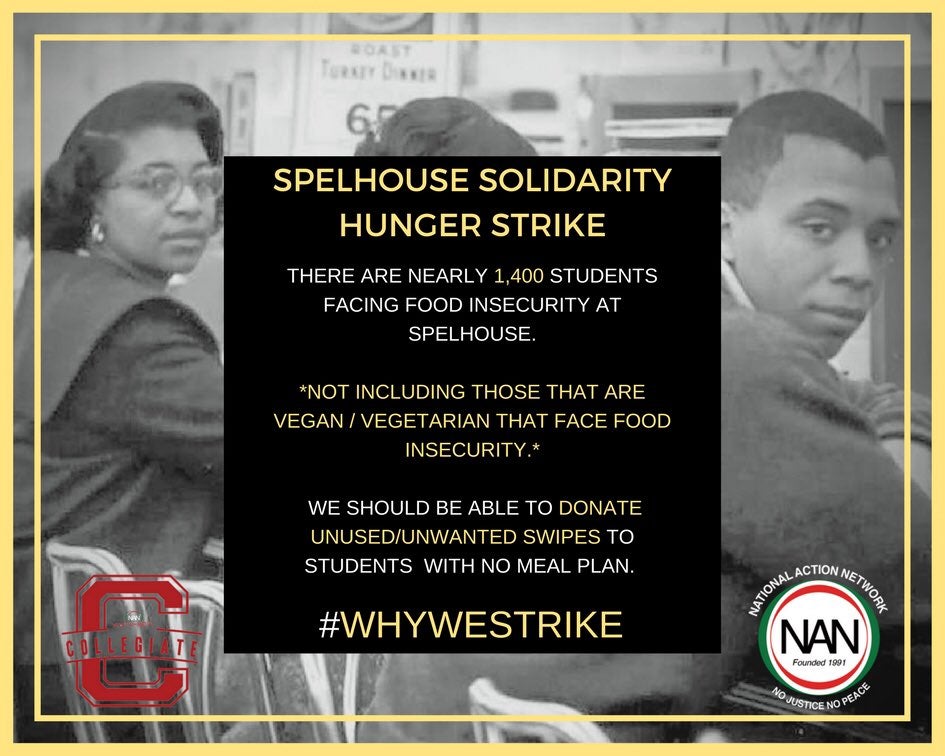
The students of Spelman and Morehouse colleges are taking a stand against school food policies that they believe are insensitive to the hunger and homelessness issues plaguing many of their campus peers.
In an effort to help raise awareness about the issues, student leaders at SpelHouse have launched a campus-wide hunger strike, tareting a specific rule that currently prevents students from sharing their food card “meal swipes” with other students who may not be able to afford to enroll in the campus meal plan. To alleviate the problem, National Action Network Youth Director and Spelman student Mary-Pat Hector has proposed the implementation of a “Swipe Out Hunger” program.
“By introducing a Swipe Out Hunger program at Spelman and Morehouse, we would directly impact student hunger and raise the awareness on issues impacting our fellow students experiencing hunger and homelessness while in college,” Hector said in a statement.
According to an official FAFSA report, there were more than 58,000 homeless students enrolled in universities across the United States in 2015, although the number did not account for those students who did not report their homeless status on the FAFSA form. Together with the National Action Network Collegiate group, SpelHouse student leadership is calling on school administrators to implement the Swipe Out Hunger program across both campuses.
“SOH is a national initiative that has been recognized by the past Presidential administration as a “Campus Champion of Change,” the statement continues. “‘[SOH] is seen in universities and pushed by their students to fight local hunger through unused points on students’ meal plans. Its first chapter was founded in 2009 at the University of California, Los Angeles and has since spread its mission to more than 19 universities and colleges. Since its start in 2010, the organization has donated more than 1 million meals through more than 15,000 student donors.”
The SpelHouse hunger strike has birthed the social media hashtag #WhyWeStrike, which students have been using to speak out about campus policies that they feel contribute to keeping the homelessness and hunger among college students alive.
